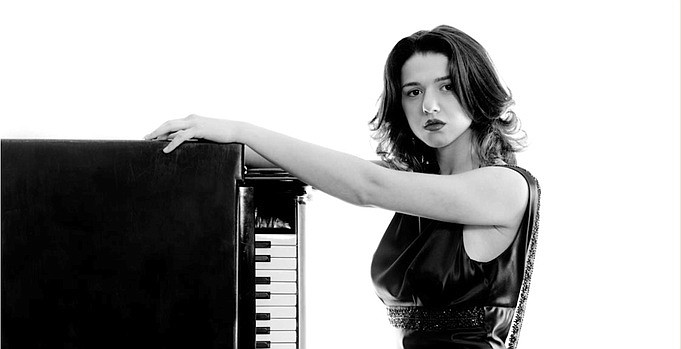- April 18, 2024
-
-
Loading

Loading

SCA’s Great Performers Series Brings Orpheus to Sarasota
The conductorless Orpheus Chamber Orchestra paid a visit to Sarasota Tuesday evening with one of the most eloquent concerts, in program and execution, we’ve heard in a long time.
While Orpheus has been around for about 44 years, offering programs that span several centuries, the group – which has obviously changed personnel over the years – has maintained its high standards and buoyant musicality, along with an amazing sense of intimacy that draws its listeners onto the stage.
This program, opening with a joyous symphony by Haydn (the Number 1 in D), was followed by Mozart’s beloved D Minor Piano Concerto, K. 466. The Haydn gave Orpheus the chance to show off its impeccable intonation, beautifully crafted phrasing and a sense of dynamic colors many ensembles don’t manage with the aid of a conductor.
Mozart’s K. 466 was given an elegant reading by Khatia Buniatishvili. The 29 year old Georgian pianist wore a sleek black gown with a jeweled back cut down almost to the piano bench and, had it not been for her tasteful artistry and technique, this review might have turned into a discussion about fashion. But the moment Buniatishvili’s hands touched the keyboard her glamorous gown was forgotten and it was pure music from then on. The pianist and orchestra were breathtakingly together, as if they were all of one mind, and they played with a simplicity of style that was ravishing.
It was particularly fascinating to watch the interaction, subtle interaction, between the concertmaster and pianist as, with a bob of the head or a simple breath, they cued downbeats and tapered phrases as if they were members of a piano trio instead of a good-sized chamber orchestra.
Orpheus rotates its members so the concertmaster for one piece may be last stand for another and it works like a charm because these are all solo musicians who’ve come together to make chamber music.
In Anton Arensky’s Variations on a Theme by Tchaikovsky, the ensemble’s use of a straight tone made the all-string ensemble sound like a single voice. It was clear, pure playing and it gave Arensky’s tribute a voice that, in parts, echoed Tchaikovsky’s Serenade for Strings, although the theme Arensky chose for this work was based on a Tchaikovsky song. It was fitting, then, that Orpheus’ strings became voices and sang this work with an enviable transparency.
The evening concluded with a new arrangement for orchestra by Paul Chihara of Rachmaninov’s Suite Number 2 for Two Pianos. Chihara’s orchestration seemed to take away the very specific sound of Rachmaninov but, with its brass, percussion and timpani added to the strings and winds of Orpheus, we had a different and attractive work that could stand on its own merits. Chihara dwelled a little too much on the sounds of the glockenspiel for my taste but, over-all, he made an arrangement that was both curious and attention-grabbing. The final movement was more successful with a great growl of the lower strings introducing the theme in a way that sounded more Russian than Hollywood.
Arrangement aside, this was a beautifully satisfying concert.